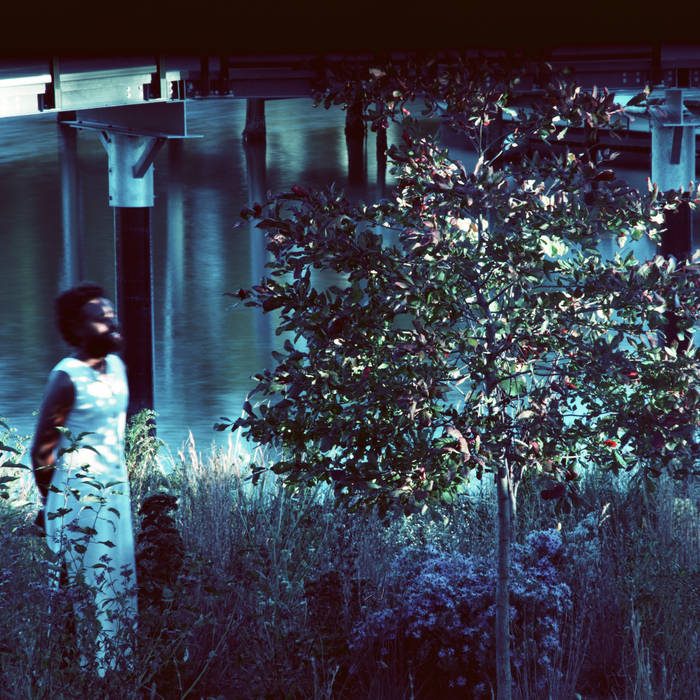There are perhaps only two things you need to know about JJJJJerome Ellis before listening to Vesper Sparrow: they live in a monastery in Norfolk, on traditional Nansemond and Chesepioc territory in Virginia; and their name onomatopoeically includes their stutter, which acts up most when they introduce themselves. What you’ll know after listening to Vesper Sparrow, is an option for the album of the year.
Ellis’s musical practice thus far has focused on stuttering not as an impediment but as a deconstruction – and by implication, a premise for reconstruction – of language, sound and music. That much is revealed to the listener from the first track of ‘Evensong’, a four-part suite that frames Vesper Sparrow. “A stutter can be a musical instrument,” Ellis explains, before the song bursts from silence into an expanse of woodwinds, tsimbls, autoharps, distorted walls of modular synths, hummed melodies and Ellis’s saxophone running and stabbing around it all. This was created by a process called ‘granular synthesis’, splitting walls of sound into blocks or ‘grains’, super-sharp pointillist bursts of music. Imagine taking a cross-section of a DAW stem, or think of Beatrice Dillon’s 2020 album Workaround, but even tighter. These dance through to the second part of ‘Evensong’ where the modular synths return and the key drops down. Then, bounding through the mix, a thumping, skipping trap beat. Bravo.
But the heart of the album is where Vesper Sparrow really sings. Ellis omits raspy vocal notes over what sound like violins played in reverse, and a piano melody stumbling across tempos. “Why should I feel discouraged,” he asks, achingly. Their words echo naturally, the extent of the space given shape by sound. Then, we hear Ellis’s saxophone keys fluttering, like flapping wings, before the piano crescendos and sustains to fill the space – the air – beneath it. “And why should the shadows come?”
Ellis’s practice, after all, understands minimalism as a way of identifying space, the inherent tension of melody, the suspension between one sound and another, and the meaning that is created between and as a result of each. But there’s nothing spare or nihilistic here, and that’s where Ellis sets themself apart. ‘Savannah Sparrow’, following on from ‘Vesper…’, opens with an organ, reaching out to the listener from the back of the mix. Where recent artists like Kali Malone and Sarah Davachi have turned to the organ for the uncanny, distancing the listener with their monumental compositions; Ellis’s playing is warm. Their chords are full, even progressive at times, in spite of the emptiness they seek to fill.
And so it becomes clear that, in a sense, this is a record one part gospel, another part New Age. You can hear ancestors of the latter like Laraaji, as well as newer practitioners like MIZU. Ellis’s saxophone voicings on ‘Evensong’ even evoke the late Pharoah Sanders. What unites them all, is their steadfast belief in music’s transcendence, a shockingly earnest opinion in cynical times. For their part, Ellis invites us to see into the interregna of the world. Or as they say at the beginning of ‘Evensong’, inflecting the sentence like a spontaneous recognition: “I’m listening to it as I speak.”


